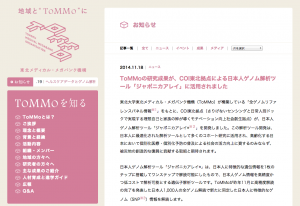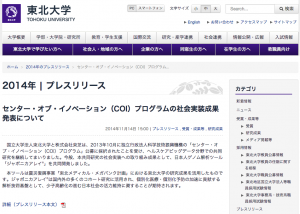The 52nd In Silico Megabank Research Seminar will be held on Wednesday, January 7.
This Time, we will be welcoming Dr. Andre Fujita, University of Sao Paulo as our lecturer, and he will be speaking on “Computational Statistics in Biological Big Data: Methods and Applications”.
・Date/Time: January 7(Wednesday) 17:00‐18:30
・Venue: Small Conference Room 2(3rd Floor), Tohoku Medical Megabank Building
・Title: Computational Statistics in Biological Big Data: Methods and Applications
・Lecturer: Andre Fujita (University of Sao Paulo)
*This lecture is transferable as a class in the medical research-related lecture course.
・Abstract: The understanding of the biological mechanisms underlying human diseases is one of the main challenges in biological sciences. Although several efforts, the large number of heterogeneous factors that influence the genesis of a disease makes it a very hard task. One of the challenges consists in understanding diseases by developing methods to statistically analyze and computationally manipulate big data. This difficulty is generated by ultra large data size, heterogeneity, multidimensionality, and presence of intrinsic noise. In this context, computationally intensive statistical methods developed by our group are presented with applications in neuroscience and molecular biology. In neuroscience, the focus is on the analysis of resting-state fMRI data of ~600 individuals diagnosed with ADHD and ~900 subjects with ASD. In the context of molecular biology, partial results obtained from the study of miRNA expression of a cohort of ~2,000 breast cancer subjects are presented.
・Organizer : Kaname Kojima, Masao Nagasaki


